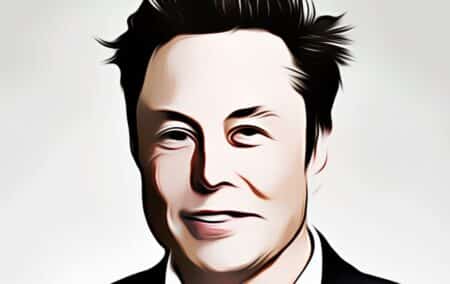Elon Musk must be terrified. Word in Downing Street is that a crack squad of diplomats and former civil servants is being assembled to travel to Austin, Texas – or Mar a Lago – where they will tell the South African billionaire to back off from jeering at Britain’s most prominent Fabian socialist, Sir Keir Starmer.
The unit has reportedly over five decades of civil service experience between them, and have handled, erm, “highly sensitive matters”. Preventing a nuclear strike on the Palace? Exposing a ring of predators working at the BBC? Much better than that actually: two of the group are reported to have included BLM fists in their work email signatures in June 2020. Remarkable courage.
But direct confrontation to pacify Musk is only one part of the strategy. For the other, sacks of bones have gathered at the House of Lords to issue a thinly veiled threat in the form of a report. The Lords’ “Communication and Digital Committee”, where the youngest member is a sprightly 81, completed a report entitled “The Future of News” on the 12th of November, but only published it on Monday this week – thirteen extra days to translate Germanic into English, decipher words hidden inside spiders, and remove some tracked comments made during the course of the report such as: “If Mr. Musk does attend the proposed select committee hearing, would it be possible he be sent up to my office to help connect the printer?”
Reason to be worried
The Lords have reason to be worried: no threat has ever faced a British Prime Minister like Elon Musk before. Musk is a meme cannon of mirth and ridicule, a flammable chain of indignation, humiliation, ratios, and community notes. It is not possible for Keir Starmer – a man elected barely 4 months ago – to make a statement on X anymore without the post being subjected to a live body cavity inspection.
Excluding the party responsible for composing Joe Biden’s remarks, no other leader in recent memory has faced such a tough, uncompromising section of the audience. Nobody has appeared so irredeemable.
Defenders of the Prime Minister are an increasingly rare phenomenon, but you can still find them giggling with their phones in your bedroom cupboard or waiting next to the round hole in the toilet cubicle wall. They are devastated that the man they idolize, who once attended “youth workers league” bootcamps (for those who don’t speak wanker, that means “communist madrassa”) then went on to defend death row inmates, could stumble into the rotten luck of making an enemy of the world’s richest man.
But when they brood retaliation via tighter regulation and the humiliation of X’s executives in front of select committees, the obvious is apparent: their man doesn’t stand a chance in hell against Musk.
Only person
The irony is that Musk is the only person Starmer didn’t actually pick a fight with, post his election. The elderly, the white working class, employers, savers, small business owners, farmers – ordinary Americans ostensibly undecided – and peace activists all found themselves in the PM’s crosshairs, obviously because Starmer knows society’s less-elite verticals have fewer means to insulate themselves.
So, in the manner of Tolkien’s lighting of the beacons, it was to these groups’ defence that Musk sprang, and today the sensible British now hold him in higher regard than their own Prime Minister. Such cold recognition dismisses the “landslide” that Starmer claimed in July.
From Musk’s side, the animosity is accompanied by deeper substance. On his journey from abandoned Democrat to Dark Maga, he’s been struck by the scandal of “Covid”, the profligacy of the state, a media landscape ensnared by intelligence agencies, the demonization of faith (with the curious exception of Islam), and the degeneration of academia – something he blames for the loss of a child he regards as a victim of the “woke mind virus”. These things have guided his clobbering of Starmer and led him from one arena to the next.
Adjacent
The newest arena is interesting because it is not taking place in the UK but adjacent. Davos. In January 2023 Starmer admitted he prefers this kind of management style, but here Musk sees various initiatives and campaigns, many using the radical foundation of “climate”, as the means to destroy private generation of capital. He is not alone: increasingly people like Jerome Powell and the President-elect are uncomfortable with the schemes deployed by Davos’s slave, the EU, and its member nations, led by people who generally believe the same things Starmer does.
These people fight their battles like Oscar Wilde’s coward in the final stanza of the Ballad of Reading Gaol, where enemies – be they farmers or even political parties – get the whole the-process-is-the-punishment treatment. They are “courteously” intimidated, “reluctantly” stripped of agency, “mistakenly” debanked, and “inadvertently” inconvenienced with polite but arbitrary investigations.
Commentary in South Africa ignores Musk and surrenders itself to lazy comparisons between Jacob Zuma and Donald Trump that actually began in 2016. These are bitter and vengeful – you know this because they keep on repeating the same sentences and words (“threat to democracy”, “playbook”).
Missing from this asinine emphasis is a bigger war that promises better quality entertainment. Musk has already destroyed the EU’s former information commissar, and will likely jump at the chance to do the same to the UK’s broadcast regulator Ofcom. In America, ordinary citizens have not forgotten that Starmer refused to condemn his own party’s interference in those elections and are calling for a “recalibration” of UK/US relations.
I’m not clever enough to know exactly what that means, but if it’s another way of saying “invade” – then let’s have it. There will be plenty of memes for Musk to repost.
The views of the writer are not necessarily the views of the Daily Friend or the IRR.
If you like what you have just read, support the Daily Friend

